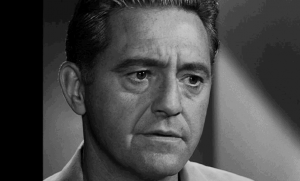
When Edward Binns sat down to order a meal in a restaurant or when he merely walked down a street, members of the public would often physically grab him by the arm or by the shoulder. His face, that distinctly graveled voice (seasoned by having smoked four packs of cigarettes a day and broken his nose twice) and the gutsy aura that exuded from him were so familiar that people felt comfortable doing that.
But knowing his name was another matter. His wife (his third wife, Elizabeth) told me that the lack of knowledge of his name bothered him more than the grabbing. Once, a man in Cape Cod, gripping Binns’ arm, fired out the remark, “I’m a trivia expert. What’s your name?” …Awkward!
And there was the repeated confusion with a similar but more name-recognizable character actor of the day; when Ed Binns would deny being Frank Lovejoy people would sometimes say, “Oh, you’re joking.” It happened frequently enough that he got so he could identify that hey-you’re-Frank Lovejoy-look before a word was spoken. So he had a card made up that he could hand off which said, “Yes I am an actor. No, I’m not Frank Lovejoy.”
…so good in a dusty jumpsuit!
Along with noteworthy performances in such films as Fail Safe (1964) and The Verdict (1982), Edward Binns is probably best remembered by vintage cinema fans as an earnest juror grappling for clarity in 1957’s 12 Angry Men. In an unpublished memoir, Binns described the filming of the movie as, “…no air conditioning, hot lights, confined quarters, July in sticky, sweaty New York – it was the pits… Because of the nature of the shooting, there were no staggered calls; everybody was due in at 8 and worked until 7…Every day the same set [the claustrophobic jury room]. I had a scene with Henry Fonda that took place in the men’s room, and,” because the other actors were envious, “the guys said to me, ‘You’re lucky! You get to go out on location!’”
If you’re a Twilight Zone lover, you surely remember him in a segment that 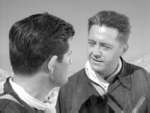 was shot in another hot location; but this one was arid and wide open. Binns played a benevolent astronaut colonel (he looks so good in a dusty jumpsuit!) who is mercilessly and,…SPOILER ALERT…as it turns out, needlessly shot and killed by a deranged underling near the end of the memorable “I Shot an Arrow Into the Air” installment. He starred in the title role of police detective Brenner in a series that ran on CBS for five years. In all, Mr. Binns made hundreds of television appearances and he was so good and so reliable – despite his years of battle with alcoholism; more on that later – that he often became a semi-regular on shows including The Defenders and Dr. Kildare or made repeat guest appearances in varying roles on series such as Wagon Train and The Virginian.
was shot in another hot location; but this one was arid and wide open. Binns played a benevolent astronaut colonel (he looks so good in a dusty jumpsuit!) who is mercilessly and,…SPOILER ALERT…as it turns out, needlessly shot and killed by a deranged underling near the end of the memorable “I Shot an Arrow Into the Air” installment. He starred in the title role of police detective Brenner in a series that ran on CBS for five years. In all, Mr. Binns made hundreds of television appearances and he was so good and so reliable – despite his years of battle with alcoholism; more on that later – that he often became a semi-regular on shows including The Defenders and Dr. Kildare or made repeat guest appearances in varying roles on series such as Wagon Train and The Virginian.
“…give it a whirl…”
Ed Binns was one of six siblings (all boys) and became the father of three children (all girls). I talked by phone with John, the only brother who survived him, who told me much about the kid brother he admittedly idolized. I found it surprising that though Edward was his father’s namesake, he was the youngest of the six Binns brothers.
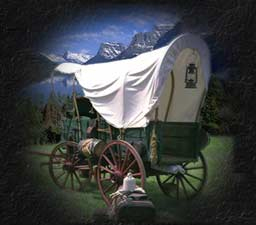
Their parents, Edward Thomas Binns and Esther Bracken Binns, were Pennsylvania Quakers. Before Eddie’s birth, the family had taken off in a covered wagon for Oklahoma to settle in the “land grab” of the early 20th Century. But after a swindle in which their land was stolen by what John described as “carpetbaggers,” the family gave up the dream and moved back to Philadelphia where Edward was born on September 12, 1916.
Eddie and his brothers rode the elevated train downtown to the Friends Select School and later boarded at the preparatory school, Westtown. For its first 130 years, Westtown was entirely Quaker and when the Binns brothers attended it held its student population to 300 – exactly half male and half female. Again I was surprised to learn that, even then, the school staged theatrical productions. Edward and John performed in a couple of plays there but Eddie claimed never to take that stuff seriously until his freshman year at Penn State University. A fellow student suggested to him that there were, “some great-looking girls” over at the tryouts for the university’s drama group and that maybe they should go over and, “give it a whirl just for fun.”
Binns began acting and the “fun” lasted for the next four decades. Truly, not all of it was “fun,” of course. A disgruntlement took hold in the later years as, increasingly, younger casting people were unfamiliar with him and his body of work – and treated him accordingly.
But in those first two years out of college, Edward relished learning the basic skills that create the underpinnings of a well-rounded actor as an apprentice at the Cleveland Playhouse (an arena that Elizabeth told me remained a “home base” for him for the rest of his life). Then came a brief sojourn in a theatre in Mexico, followed by four years of serving in World War II. Then back to the Cleveland Playhouse from which, in the late 1940’s, the play Command Decision was optioned for Broadway and Binns got his first role on the Great White Way. (About the New York stage he wrote, “Twice I was in plays on Broadway which ran for a year. I want to tell you that being in a play for a year is like being in jail. You can’t go away…when the kids are out of school. You can’t even go away for the weekend.”)
“Calling card”
The world of Broadway has always been small and, through an assistant stage manager friend, Edward got a successful audition to join The Actors Studio as a ground floor member. He said membership in the Studio was like a “calling card” and he found that doors opened more welcomingly after that. He found himself appearing in about 300 live television shows over the next five or six years. He bounced, for instance, from kneeing James Dean to the floor in an Omnibus segment to having his face smeared with ketchup as a stooge on The Milton Berle Show. Of the latter he later wrote, “It was a humbling experience.”
Then seemingly out of the blue, video tape replaced kinescope and live TV quickly began to dehydrate. Television production moved to the Hollywood film lots and most of the industry was swept west, carrying Binns, the young family he now had, and scores of others along with it.
“the second most difficult thing…”
Binns was married three times. The first two marriages each ended in divorce; the third flourished until his death in 1990 at age 74.
On his first professional acting job, at Vassar College, Eddie met a young playwright named Katherine Dain. They were married during the war years. It soon became apparent that Katherine suffered from mental illness. She gave birth to two daughters, Nancy and Judy. In a phone interview, Judy told me of how, in time, her mother was hospitalized with a complete mental breakdown and underwent shock treatment. And she spoke of the strain and stress this put on each of the four family members.
“But she was able to bring us up,” her daughter said, along with help from grandparents. “Dad asked for a divorce when she was coming out of the hospital. He said it was the second most difficult thing he ever had to do. The first most difficult thing was putting his daughters on the plane to give them up.” Despite Dain’s “borderline functioning,” she kept custody of the girls and the family was separated by the 2000 miles between southern California and Minnesota.
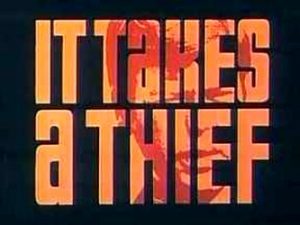 While on national tour with actress Julie Harris in the play Saint Joan, Ed landed in San Francisco where he met and fell in love with journalist Marcia Légère. They were married in 1956. It was during this, the longest marriage which lasted some 28 years, that Binns had a stint as a major supporting player to Robert Wagner’s starring role in the third season of the TV action-adventure series It Takes a Thief. (Again by phone, some years ago, Marcia was the first person I ever heard refer to Robert Wagner as “RJ.” I think just about every fan of ’60s cinema now recognizes that as Wagner’s nickname. She said that RJ is, “such a nice man.”) Légère described one summer spent shooting on location for Thief in Italy as an “idyllic time.”
While on national tour with actress Julie Harris in the play Saint Joan, Ed landed in San Francisco where he met and fell in love with journalist Marcia Légère. They were married in 1956. It was during this, the longest marriage which lasted some 28 years, that Binns had a stint as a major supporting player to Robert Wagner’s starring role in the third season of the TV action-adventure series It Takes a Thief. (Again by phone, some years ago, Marcia was the first person I ever heard refer to Robert Wagner as “RJ.” I think just about every fan of ’60s cinema now recognizes that as Wagner’s nickname. She said that RJ is, “such a nice man.”) Légère described one summer spent shooting on location for Thief in Italy as an “idyllic time.”
But the marriage itself was not easy-going as Mr. Binns, more and more, succumbed to what he called, “a self-destructive streak in my character.” He drank heavily. By the end of what began as an idyllic summer Légère said she knew the marriage would have to end. Yet it endured another ten years, perforated by binges and emotional explosions.
“He was a tremendous wit,” Marcia remarked. “He was funny.” But he was, “not a politician. His manner rather seared strangers.” She said he could be, “distant, controlled, inward.”
They had one daughter, Brigit, who once, upon seeing Ed on a TV screen kissing actress Barbara Rush asked her mother, “Is Daddy coming home tonight?”
When the first two Binns children came to Santa Barbara to visit for at least a month each summer they would experience a lot of quicksilver drama. “At the dinner table, I didn’t like Dad’s behavior,” Judy told me. “It was almost abusive. He would touch me too firmly. He would make fun of me. I would think, I hate this.” So she took to drinking some of the wine out of his glass. She says her thought was, He can’t drink it if I drink it. She added “I would get sleepy. No one noticed.”
In 1968, Binns joined Alcoholics Anonymous. He had a few major slips but, eventually, the principles stuck.
“He could be a pain to live with,” Judy said to me. “There were times I would get furious.” And yet, “Regardless of everything he went through, I really felt he loved me. His love was always there.”
“…the phone isn’t ringing.”
Eddie Binns was carrying a lot of “scar tissue” from the period when he was blacklisted during the “McCarthy Terror”. “My career was flowering,” Binns has said of that time back in the 1950’s. “Then it hit. All of a sudden …the phone isn’t ringing.” He goes on to explain, “I had to dig deep to find out what was going on…I knew that people were dropping like flies everywhere. Actors, writers, directors and producers were all being accused of being un-American by these self-appointed guardians of patriotism, theses scoundrels, these bullies dead set on destroying good people’s careers.” Binns had no idea of what the specific accusation was. “It was like trying to defend yourself against the wind. You couldn’t find it.”
He t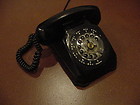 urned for help to his agent whom he described as being, “a little slimy.” The agent said that for $250 – a sum equal to ten times that or more today – he could get contacts at the FBI in Washington to search the files. “And no checks,” he demanded. “I want crisp bills straight from the bank.”
urned for help to his agent whom he described as being, “a little slimy.” The agent said that for $250 – a sum equal to ten times that or more today – he could get contacts at the FBI in Washington to search the files. “And no checks,” he demanded. “I want crisp bills straight from the bank.”
“This was also at a time when I was broke, out of work and had two kids to take care of,” Edward lamented. “For me to raise that kind of money was quite a feat, but somehow I managed.” There was nothing more he could do after that but sit back and wait.
A couple of weeks went by before the agent called saying, “I found out what you are accused of.”
He reported that there was an alderwoman in Brooklyn named Rebecca Binns who had run for office about ten years earlier on the Communist party ticket. They thought Ed might be related. That was all. (Well that, plus membership in The Actors Studio – whose teaching principles were founded on The Method of a Russian artist and which was, therefore, purported to be rife with “sympathizers” exploring the Communist party as an ideology. This was damning.)
By writing an official letter proclaiming his patriotism, Binns was able to get his blacklisting to ease and eventually to end in a couple of years. But the wound was deep and never completely healed. “If I would have had to name names or if I would have had to go before the Un-American Activities Committee, I think my decision might have been different…I would have just gotten out of the profession – I think. I don’t know.” When the work resumed, the parts he was allowed to get were not of the stature of the parts he was getting before the blacklist. It was like starting his career over from the beginning and by the time he inched his way back up he was no longer the “leading man” he had been. Binns had become, and would forever remain, a character actor.
“I see an actor as an inside-out human being.” E.B.
Edward Binns cherished performing in regional theatre and, in particular, credited Tyrone Guthrie with teaching him to be, “a tougher, more durable, more independent and self-sufficient actor.”
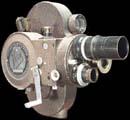 But he never liked seeing himself on screen. In the unpublished memoir he admitted, “I remember seeing myself in that first film [Teresa 1951]. I was horrified and could not believe I had made such a fool of myself…It might seem odd, but all these years and many, many movies later, that hasn’t changed.”
But he never liked seeing himself on screen. In the unpublished memoir he admitted, “I remember seeing myself in that first film [Teresa 1951]. I was horrified and could not believe I had made such a fool of myself…It might seem odd, but all these years and many, many movies later, that hasn’t changed.”
He picked up a certain trick from actor Karl Malden. Because films are not shot chronologically, Ed learned to create a “player’s roadmap” of the emotional progression of a character. He used index cards or the back of a script to make notes about the character’s emotional life; then when the time came to shoot a scene out of sequence, he could retrace everything that leads up to that moment.
“In film,” Binns said, “if you play a scene for longer than two minutes, it’s quite unusual.” He paints this vivid picture of life seen from the other side when his career was at its peak: “You look past the camera and see someone else playing grab-ass or sleeping or picking his nose…The make-up person is checking for sweat or hot spots, the script girl is writing on her clip board and the wardrobe woman is complaining about stale doughnuts. All of this goes on while you’re supposed to be delivering a serious and intense speech.”
Elizabeth
I met with Binns’ widow – elegant Tony award-winning actress Elizabeth Franz – one afternoon in a subleased, modest but very attractively 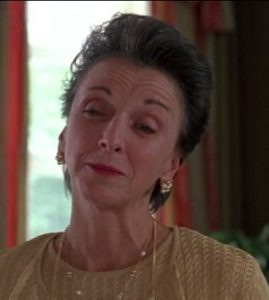 appointed penthouse on the Upper West Side of Manhattan a little more than four years after he died. She portrayed to me how – after a series of his illnesses and quadruple by-pass heart surgery – they were driving to their home in Connecticut, planning to stop on the way and have a cup of tea. Edward looked out the window and said, “Look at that sunset.” Then he just…. died. She and I just stared at each other for a few moments. Silent. She described his death as, “magical.” And I felt that I had loved him too, in a thin way – much like some of those strangers who used to grab his arm.
appointed penthouse on the Upper West Side of Manhattan a little more than four years after he died. She portrayed to me how – after a series of his illnesses and quadruple by-pass heart surgery – they were driving to their home in Connecticut, planning to stop on the way and have a cup of tea. Edward looked out the window and said, “Look at that sunset.” Then he just…. died. She and I just stared at each other for a few moments. Silent. She described his death as, “magical.” And I felt that I had loved him too, in a thin way – much like some of those strangers who used to grab his arm.
Edward was 7 years sober when they met. Both Marcia and Elizabeth told me of how hard he worked helping other alcoholics, particularly younger people, who were trying to travel a sober path.
Elizabeth, who was 25 years younger than her husband, told me of some of his late-in-life struggles. He struggled with health and with an increasingly profit hungry, business-oriented entertainment industry that actually made him miss the crazy kooks who had been movie moguls. He settled, for a while, into the anonymity of voice-over work, spreading his reassuring tones across the airwaves in TV commercials. He called it, “an emotional and artistic necessity.” When the director of a Volvo ad asked him to put a smile in his voice Ed gave the stony reply, “My voice doesn’t smile.”
“He never compromised who he was,” Franz said.
out of the corner of his mouth…
One time, an elderly man passing by Edward Binns on a Manhattan bus leaned in and said out of the corner of his mouth, “You never gave a bad performance in your whole life.” I think most American television and film audiences would agree. Thank you for all that, Mr. B. ~FW
<- Return to search